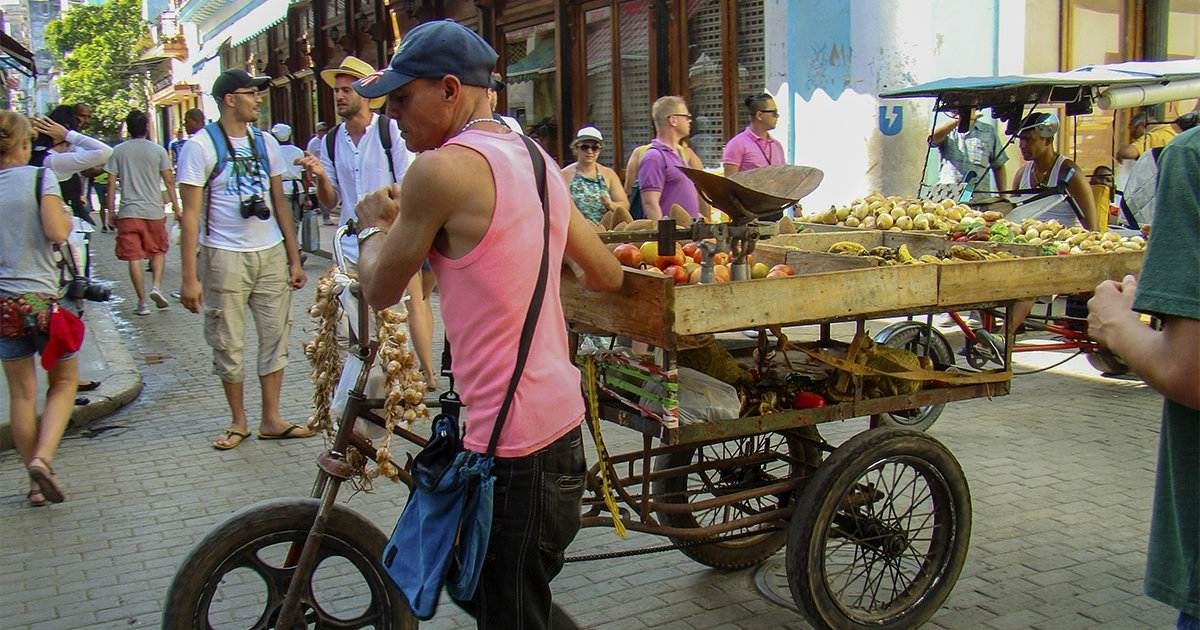
Havana, Dec 6 (EFE).- To the relief and euphoria of hoteliers and other Cuban self-employed workers, the Government of Cubadecided at the last minute not to apply a series of restrictions that challenged the continuity of their businesses. What remains to be done, however, is to appease the spirits of the taxi drivers who are threatening a strike.
"It took us all by surprise, becauseThe regulations came into force on Friday"he declared toWhich oneIn Havana, 29-year-old businesswoman Marta Deus, who combines her main accounting and consulting business with a courier business, said that the sector is "euphoric."
After months of uncertainty and just two days after its implementation, the Cuban Government announced by surprise on Thursday that the feared restriction of a single license per "self-employed" or self-employed worker will no longer apply.
If the planned regulations had come into force tomorrow, Friday, many private businesses would have been forced to return one of their licenses and reformulate: a hairdresser would no longer be able to offer coffee and cakes to its clientele, and a bar would not be allowed to have a section of book sales, for example.
Nor could a Cuban who rented a room in his house combine his license with a transportation permit to give tourists a ride in a vintage car, another common combination.
Better late than never, say many affected people. "I had already handed in one of my licenses the previous week to avoid the lines," laments the young entrepreneur.
In addition to eliminating the single license rule, the Government lifted another controversial restriction: the one that limited the capacity of thriving private restaurants or "paladares" to 50 seats.
"Everyone is very happy," declared the owner of a well-known restaurant in the wealthy Havana neighborhood of Miramar, speaking anonymously.
This hotelier had already prepared to reduce the number of places by almost half, which would have forced him to increase prices and "resort to creativity" so as not to have to fire any of his more than twenty employees.
When the provisions that regulate their activity come into force on Friday, self-employed workers will also have the opportunity to expand or improve their establishments without fear of another trip from the Government in the short term: "The more wings they give me, the more I will try to grow "It is the objective of all businesses," says the hotelier.
With a total population of about 11.1 million inhabitants, Cuba has 588,000 self-employed workers at the end of 2018, a figure that represents 13 percent of the active population and almost quadruples the 157,000 in 2010.
That year Cuba deviated from communist orthodoxy and legalized self-employment as a way to unload the swollen workforce of state workers, although in 2017 the Government stepped on the brakes on this opening to the private sector to "reorganize it" and eliminate illegalities, causing the discouragement of the self-employed.
Now, the euphoria of the self-employed responds in part to the fact that they feel that, for the first time, they have been attended to from above: "we have heard our discomfort with these new regulations and people commenting that it was unfair. We see that there is a will and recognizes the importance of this sector for the economy, job creation, for young people," celebrates Marta Deus.
The Government is expected to reveal imminently whether it will also give in by relaxing the new regulations for the transport sector, where many taxi drivers or "boteros" have expressed strong discomfort and have threatened to start a protest from Friday if restrictions apply to them.
Faced with the euphoria of hoteliers and other self-employed workers, concern persists among transporters.
They denounce that the provisions that will come into effect on Friday will limit their ability to choose routes and clients, negotiate rates and expand their business, in addition to imposing higher taxes, so they fear that their activity will cease to be profitable.
"With the new law I'm not going to earn even half of what I'm earning," laments Nelson, a driver without his own vehicle who transports passengers for his employer for a stipend of between $40 and $60 a month, approximately double the average salary of a state worker.
If the Government does not satisfy their demand, they threaten to gather on Friday in front of the emblematic Havana Capitol, something illegal and never seen before in Cuba, and start a 10-day strike that would leave the capital practically without effective means of transportation except for cars. individuals and a small number of buses.
What do you think?
COMMENTFiled in: